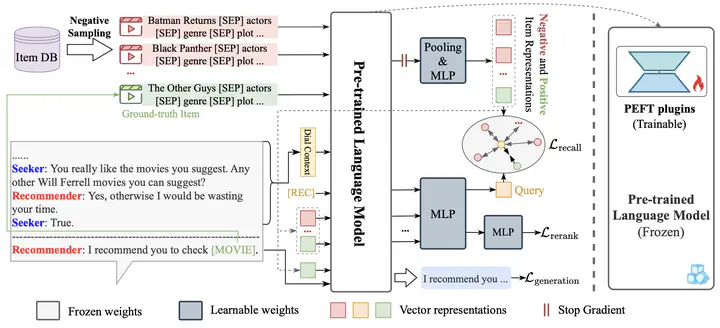Parameter-Efficient Conversational Recommender System as a Language Processing Task

Abstract
Conversational recommender systems (CRS) aim to recommend relevant items to users by eliciting user preference through natural language conversation. Prior work often utilizes external knowledge graphs for items’ semantic information, a language model for dialogue generation, and a recommendation module for ranking relevant items. This combination of multiple components suffers from a cumbersome training process, and leads to semantic misalignment issues between dialogue generation and item recommendation. In this paper, we represent items in natural language and formulate CRS as a natural language processing task. Accordingly, we leverage the power of pre-trained language models to encode items, understand user intent via conversation, perform item recommendation through semantic matching, and generate dialogues. As a unified model, our PECRS (Parameter-Efficient CRS), can be optimized in a single stage, without relying on non-textual metadata such as a knowledge graph. Experiments on two benchmark CRS datasets, ReDial and INSPIRED, demonstrate the effectiveness of PECRS on recommendation and conversation.